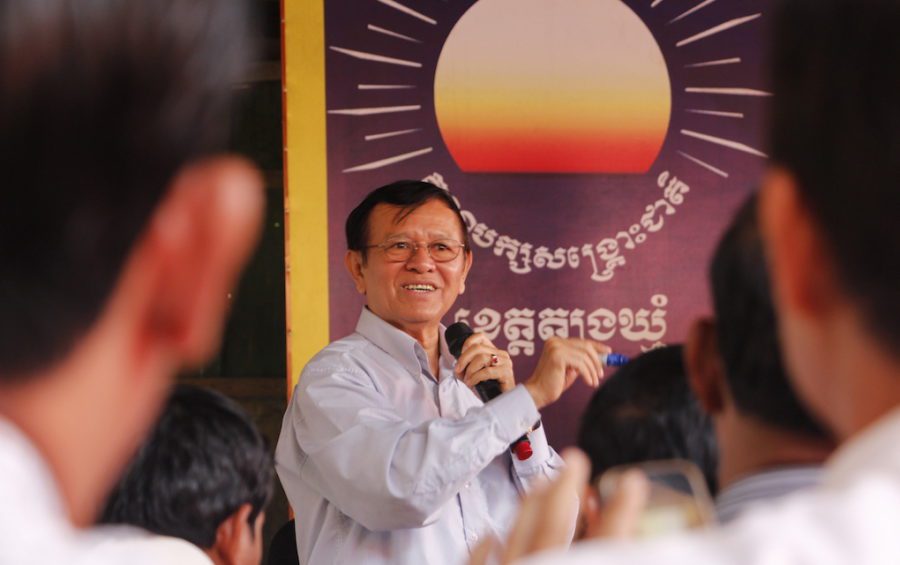Justice Ministry spokesman Chin Malin denied that the courts were excluding journalists from opposition leader Kem Sokha’s trial on Wednesday out of principle — they just did not have enough space for them or the equipment to broadcast the proceedings.
Sokha, arrested in September 2017 for allegedly conspiring with the U.S. to overthrow the government, is finally facing trial more than two years later.
His case has drawn international interest, with both the U.S. and E.U. urging that the case be dropped to allow for political competition.
However, the Phnom Penh Municipal Court has capped observers for the hearing at 30, with most spaces expected to go to foreign embassy officials.
“I was informed that it seems there is no restriction against reporters from entering, but the number is limited. We cannot register them all. So there is no principle that prevents reporters from entering,” he said.
But he did not know how many reporters had actually been permitted to attend the hearing, he said.
The court did not have the equipment to show the proceedings to anyone outside the courtroom, he added.
“If it is the same as the Khmer Rouge Tribunal, that would be good,” Malin said, referring to the livestreaming provided for hearings at the tribunal. “But we do it based on resources and the actual situation.”
Naly Pilorge, director of human rights group Licadho, said in a statement that as far as the organization knew, no independent NGO or news outlet had received permission to observe the trial proceedings.
She called on the court to record the hearings and project them outside the courtroom, as had been done in the past, citing significant local and international interest in the trial.
Khy Sovuthy, a reporter for CamboJA, a journalists’ association that includes VOD staff on its board, said he and other reporters who tried to register on Tuesday to attend the hearing were told by a court official that reporters would not be directly present in the courtroom.
Sovuthy said reporters could interview lawyers and others present in the courtroom after the hearing, but news reports should relate exactly what happened rather than secondhand information.
“So reporters should get that access,” he said.
(Translated and edited from the original article on VOD Khmer)












